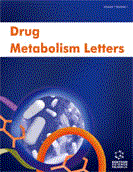Abstract
Background: SynacinnTM contains five standardized herbal extracts of Orthosiphon Stamineus (OS), Syzygium polyanthum (SZ), Curcuma xantorrizza (CX), Cinnamomum zeylanicum (CZ) and Andrographis paniculata (AP) and is standardized against phytochemical markers of rosmarinic acid, gallic acid, curcumin, catechin and andrographolide respectively. This herbal medicine has been used as health supplement for diabetes. SynacinnTM is recommended to be consumed as supplement to the diabetic drugs. However, herb-drug interaction of SynacinnTM polyherbal with present drugs is unknown.
Methods: This study was designed to investigate the effect of SynacinnTM and its individual biomarkers on drug metabolizing enzymes (CYP1A2, CYP2B6, CYP2C8, CYP2C9, CYP2C19, CYP2D6, CYP3A4 (Midazolam), CYP3A4 (Testosteron)), to assess its herb-drug interaction potential through cytochrome P450 inhibition assay. This study was conducted using liquid chromatography- tandem mass spectroscopy (LC-MS/MS) using probe substrates using human liver microsomes against CYP1A2, CYP2B6, CYP2C8, CYP2C9, CYP2C19, CYP2D6, CYP3A4 (Midazolam) and CYP3A4 (Testosteron).
Results: Result showed that SynacinnTM at maximum concentration (5000 g/ml) 100% inhibit CYP1A2, CYP2B6, CYP2C8, CYP2C9, CYP2C19, CYP2D6, CYP3A4 (Midazolam) and CYP3A4 (Testosteron). IC50 values determined were 0.23, 0.60, 0.47, 0.78, 1.23, 0.99, 1.01, and 0.91 mg/ml for CYP 1A2, 2B6, 2C8, 2C9, 2C19, 2D6, 3A4 (midazolam) and 3A4 (testosterone), respectively. Meanwhile, all individual biomarkers showed no, less or moderate inhibitory effect towards all the tested CYP450 except for curcumin that showed inhibition of CYP2C8 (91%), CYP2C9 (81%) and CYP2C19 (72%) at 10µM.
Conclusion: Curcumin was found to be an active constituent that might contribute to the inhibition of SynacinnTM against CYP2C8, CYP2C9 and CYP2C19. It can be suggested that SynacinnTM can be consumed separately from a drug known to be metabolized by all tested CYP450 enzymes.
Keywords: Polyherbal, biomarkers, herb-drug interaction, LC-MS/MS, cytochrome P450, SynacinnTM.
Graphical Abstract
 48
48 6
6 1
1














